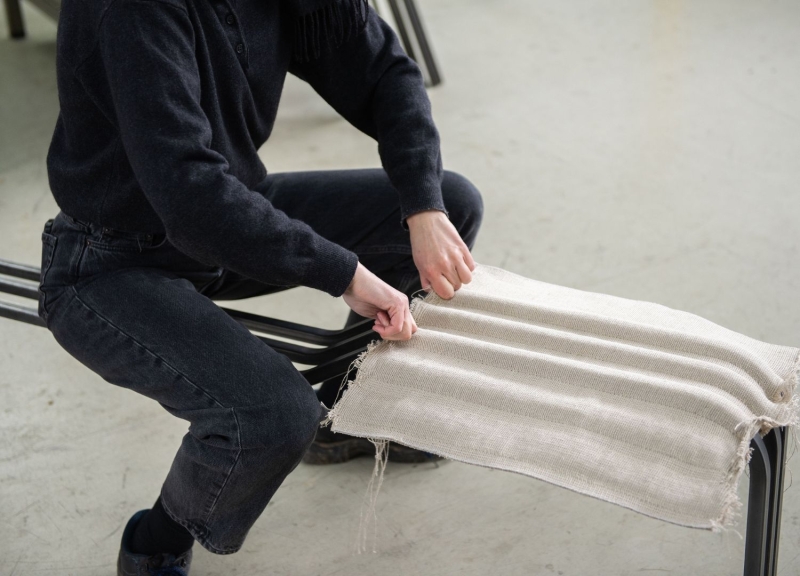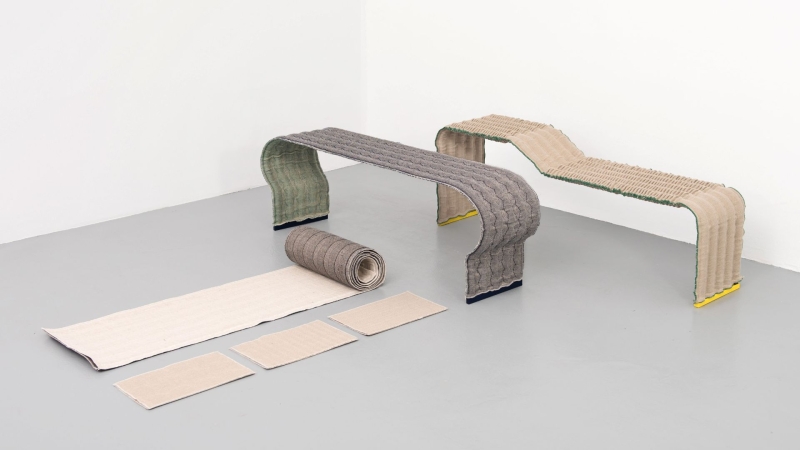LinumTube is a sustainable furniture project using natural flax fabrics and tubular steel. Its modular, reversible design allows for easy disassembly, reuse, and recycling, promoting a circular economy and reducing waste.
Born as a collaborative research project between Studio Jonathan Radetz and Fraunhofer WKI, unveiled during the special exhibition Materially – The Scale of Commitment at Milan Design Week 2025, the goal of LinumTube design project is to develop a sustainable seating-alternative using pure materials and reversible assembly techniques. This approach enables non-destructive disassembly of the components, allowing them to be reused and reintegrated into the material cycle.

LinumTube by Studio Jonathan Radetz and Fraunhofer WKI
Core of the project is the use of functionalized, multi-layer flax fabrics combined with tubular steel structures. These textiles, featuring open constructions and integrated channels, interact with the steel tube structures to create self-supporting and adaptable structures, characterized by areas of different stiffness for localized support, provided by the particular arrangement of the constitutive materials. The modular design allows for reconfiguration and expansion of furniture systems, promoting democratic and sustainable design principles.
As components can be easily separated, reuse and recycling is facilitated. In this sense, this project aligns with the principles of a circular economy, reducing environmental impact and extending the lifecycle of products.

LinumTube by Studio Jonathan Radetz and Fraunhofer WKI
Funded by the German Federal Ministry of Education and Research, LinumTube resembles a significant exploration toward sustainable and creative design solutions. Through testing and evaluating various demonstrators, the project explored the optimal combination of sustainability, separability, and design potential— givinig a tangible vision for the future of conscious furniture design.

